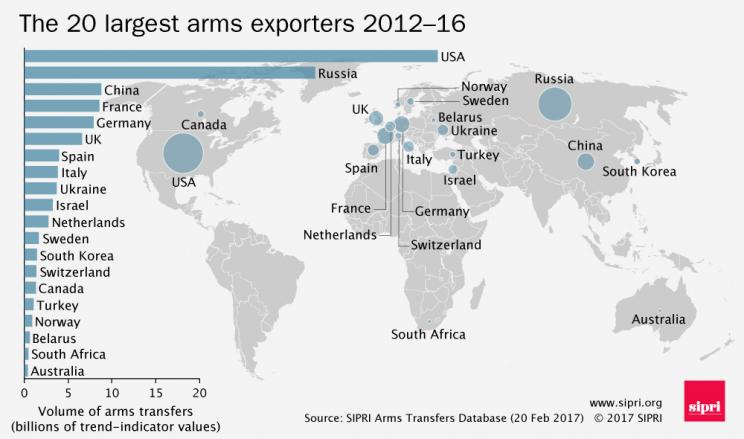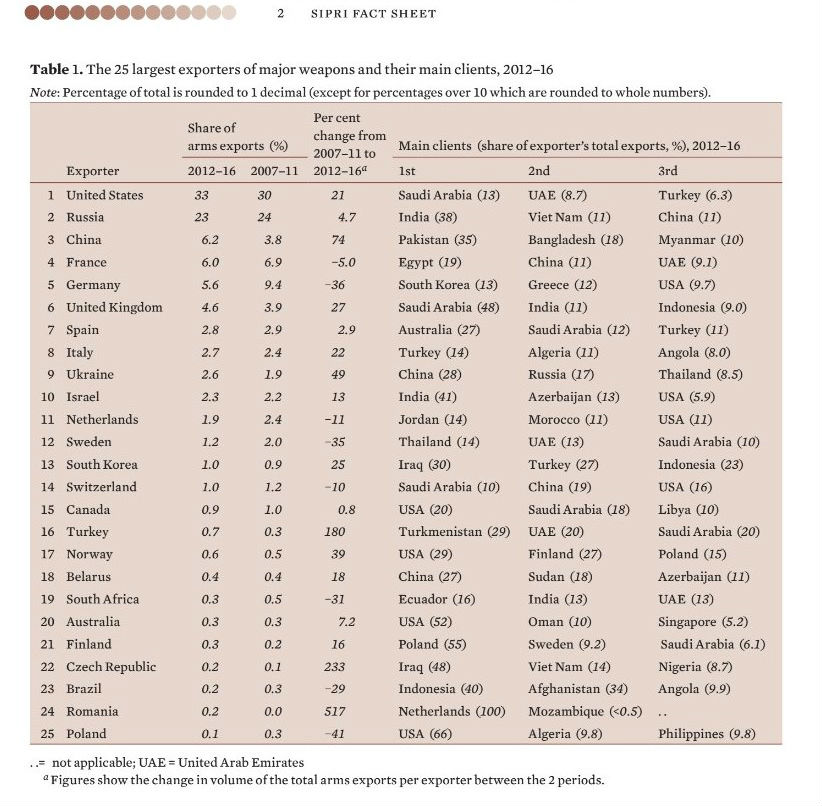Belarus expects to earn $1.3-1.5 billion on arms trade in 2018 - expert

Defense industry commentator Aliaksandr Alesin. Image: Euroradio
Belarus earned over $1 billion from the arms trade in 2017, having entered the Top 18 of the world's largest arms exporters. Euroradio asks military analyst Aliaksandr Alesin where this significant amount has come from, what military equipment Belarus sells and whether Belarusian weapons are competitive. Full conversation in this video below:
Earning a billion dollars in competition with the US and Russia is quite an achievement
As a newcomer in the global arms trade, Belarus first exported the weapons stockpiles of the former Soviet Union's Belarusian Military District. Afterwards, we began to upgrade and sell this Soviet equipment. After some time, Belarusian specialists upgraded weaponry in the client countries. Now we have entered a new period in the development of Belarus' military industrial complex: we manufacture the state-of-the-art advanced military systems.
The sale of radar and electronic warfare systems, drones, and the upgrade of the Soviet systems, including air defense systems and radars, account for the largest arms trade revenues.
Given that the global arms market is congested and highly competitite, it is a great achievement for Belarus to have earned $1 billion next to such big shots like the United States, Russia, Israel, and France.

The Soviet Union had 69 000 main battle tanks. These stockpiles are yet to be sold out
The Soviet Union had 69 000 main battle tanks - more than in all countries of the world combined. These stockpiles are yet to be sold out. But Belarus does not just sell outdated hardware equipments. Instead, we upgrade them with a modernized fire control system, replace hardware components, mount Belarus-made power plants for some systems and replace electronics. This upgraded equipment may not be the most advanced and high-tech weaponry, but in modern combat like local conflicts in Syria it represents sufficiently effective defense capabilities.
There are poor countries ready to use the outdated but upgraded Soviet-made systems, because they simply cannot afford to buy something more modern and advanced. I would not rule out that Belarus also sells some artillery systems as well as some of its main battle tanks and armored vehicles.
More advanced conteporary hence more expensive weapons account for 60% of this one billion that Belarus has earned in the global arms market, that is electronic warfare systems, drone countermeasures, space communication and navigation disruption systems. They are very expensive.
Belarus' defense budget is not large as are the sources to refill it. Part of the revenues from the arms trade is earmarked for the defense minstry's budget and its needs.

Belarus suddenly finds a window of opportunities
When Belarus was a rogue state, Russia maintained good relations with the Western nations, including the United States. Back then, it was more benefitial for Russia to sell its weapons via Belarus. Nothing could further damage Belarus' already poor international image while Russia had some things to lose. But when Belarusian military industry began to develop further, our and Russian manufacturers became competitors.
Now that the United States have announced that it will block Russia's arms trade, we can once again find ourselves in a situation when Russia will need to use Belarusian contractors.
Belarus' defense industry sector cannot compete with the United States or Russia. Rather, our direct competitors are Poland, Bulgaria, the former Yugoslav countries, which continue to manufacture, upgrade and sell the Soviet-designed weapons. They may also resell something from the Western manufactures sometimes. But taking into account the current deep deterioration of relations between Russia and the United States, any country buying weapons from each of them will be regarded by each party as a potential adversary subject to sanctions. Suddenly, Belarus finds itself in a very conducive situation as there are countries, which do not wish to become politically dependent on either USA or Russia but will want to receive weapons from an independent supplier. Belarus can explore this opportunity and offer its services on a high level.
In 2018, Belarus' revenues from arms trade will increase by 20-25% as the imternational situation (the conflict in Syria, tensions in the Middle East) will push the sales volume higher. We will earn $1.3-1.5 billion this year, according to Aliaksandr Alesin.




















